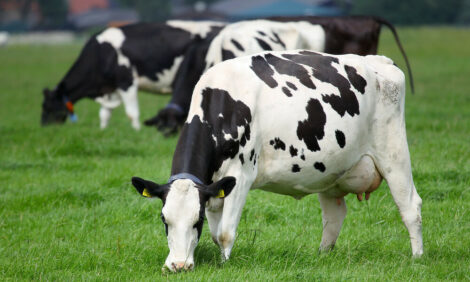



Cutting Livestock Greenhouse Gases Requires Effort from All
GLOBAL - Regulating livestock greenhouse gas emissions could shift livestock production to unregulated, less developed countries unless those poorer nations can be enticed to preserve their forested lands, according to a Purdue University economic study.Agriculture and deforestation account for about one-quarter of global greenhouse gas emissions, with methane from livestock production being the most important type of farm-related emission. Alla Golub, a research economist at the Center for Global Trade Analysis in Purdue's Department of Agricultural Economics, and Thomas Hertel, a Purdue distinguished professor of agricultural economics and executive director of the Global Trade Analysis Project, modeled policies aimed at reducing emissions from livestock.
"Emissions from agriculture have not gotten as much attention as those from fossil fuels combustion. But when the world gets serious about tackling climate policy, livestock will be an important part of that discussion," Mr Hertel said. "Livestock sectors are the most important contributors to non-CO2 greenhouse gas emissions and would be seriously affected if a tax or regulations were implemented."
Their findings, with co-authors from the Food and Agriculture Organization of the United Nations, the Electric Power Research Institute and Ohio State University were published in the Proceedings of the National Academy of Sciences. They showed that wealthy countries alone would have limited success in decreasing greenhouse gas emissions from livestock production because it would give poorer countries, with greater greenhouse gas emissions intensities, an incentive to expand production.
"In this case, we would likely see continued expansion of pasture and cropping area in regions like South America as agriculture encroaches on forested lands," Mr Golub said. "This negates greenhouse gas emissions reductions in the wealthy countries."
This led Mr Golub, Mr Hertel and their co-authors to examine what might happen if emission regulations in wealthy countries were paired with incentives to retain forested land in poorer nations. Without new grazing areas, those poorer countries would not expand their livestock production as much.
"Indeed, this combination of policies is quite effective at preventing 'emissions leakage' to developing countries while enhancing forest carbon stocks in the lower-income regions," Mr Hertel said.
The effect, however, would be less meat available for consumption in the poorer countries and a price increase globally.
"Just like a fossil fuel emissions tax would raise prices for energy, this would have an impact on agricultural prices," Mr Hertel said.
This unwanted impact on livestock consumption and production in poorer countries could be reduced by designing an appropriate policy, the authors found. Their study shows that wealthier countries could provide a subsidy that requires poorer countries to protect forested lands and shift to cleaner technologies, which would support those countries' output and consumption while reducing emissions.


